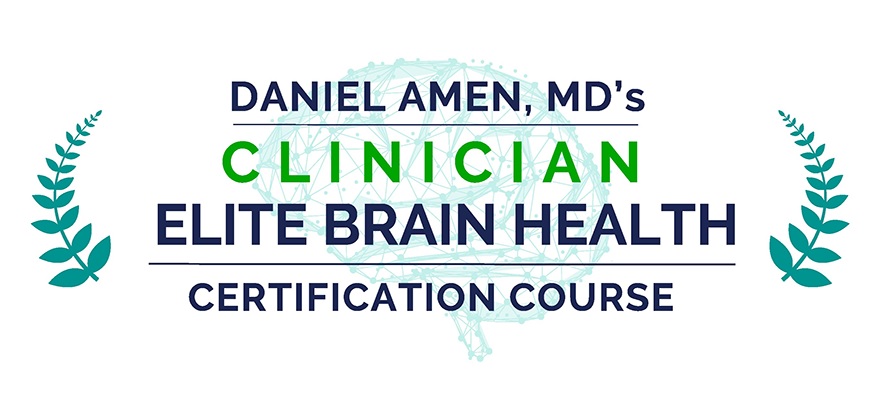
Many clinicians start their careers as broad generalists. The work is varied, the learning curve is steep, and almost every patient teaches something new. Over time, though, that same breadth can begin to feel heavy. Long days, constant switching between conditions, and a never-ending stream of complex cases can slowly drain your energy.
It is no surprise that more healthcare professionals are asking a serious question: is specialization the key to staying in this field for the long haul? Instead of trying to be everything for everyone, would it be wiser to focus on one area, build deep expertise, and let that focus carry your career forward?
The honest answer is that specialization is not a magic fix for every problem. It can, however, be a powerful tool for protecting your energy, increasing your impact, and creating a more sustainable path. Here we look at how specialization supports career longevity, the potential pitfalls to watch for, and why brain health is emerging as a particularly meaningful specialty for many clinicians.
Contents
Why Generalist Work Can Become Hard To Sustain
Generalist roles are incredibly valuable. Primary care clinicians, broad-scope therapists, and multi-role nurses often keep entire systems functioning. Yet the long-term toll of carrying so many responsibilities can be significant.
Cognitive And Emotional Load
Switching constantly between different types of problems taxes your brain. One hour you are dealing with a straightforward concern, the next hour a complex case with multiple diagnoses, family tension, and social stressors. That mental gear-shifting requires sustained focus and emotional flexibility.
Over years, this can lead to decision fatigue and compassion fatigue. You might still care deeply about patients, but feel like you are running on fumes. Many clinicians hit this wall and quietly wonder how many more years they can keep going.
Pressure To “Know Everything”
Generalists face the constant expectation that they should know a little bit about nearly every condition or situation that walks through the door. Keeping up with guidelines, research, and changing standards for such a wide range of issues is exhausting.
This feeling of never quite being “caught up” can erode confidence. It becomes harder to experience the satisfaction of mastery, which is a key ingredient in long-term motivation.
Limited Space For Personal Interests
Generalist work leaves less room to build a career around specific topics that genuinely fascinate you. You may notice that certain types of cases light you up while others drain you, yet your schedule rarely reflects those preferences.
Without a way to lean into what you enjoy most, it is easy to lose your sense of direction and purpose. Many clinicians describe feeling like they are stuck on a treadmill rather than walking a meaningful path.
How Specialization Can Support Career Longevity
Specialization is not only about prestige or higher pay. At its best, it is about aligning your work with your strengths and interests so you can keep going without burning out.
Deeper Mastery, Less Constant Reinvention
When you specialize, you spend more time on a narrower range of problems. Over time, patterns become familiar. You build internal templates for assessment and treatment that save cognitive energy. Instead of reinventing your approach for every case, you refine and adapt well-tested frameworks.
That sense of mastery feels good. It reminds you that your years of experience matter. It also frees up mental space for creativity, teaching, and complex problem solving within your chosen niche.
Stronger Professional Identity
Specialization allows you to answer the question “What do you do?” with clarity. Instead of a long list of tasks, you can say, for example, “I help people protect and improve their brain health,” or “I work with older adults who are concerned about memory.” That simple, focused identity is easier for others to remember and refer to.
A strong professional identity can also buffer you during difficult seasons. When you know why your work matters and who it is for, it is easier to stay engaged even when systems or schedules are frustrating.
More Predictable Workflows And Routines
Specialists often develop structured processes for intake, assessment, and follow-up. They know what information to gather, which tools to use, and how to plan the next steps. This does not make their work simple, but it does make it more predictable.
Predictability can be soothing for your brain. It turns chaos into patterns and helps you plan your days in ways that protect your energy.
Potential For Flexible And Diverse Roles
Ironically, narrowing your focus can increase your options. Specialists are often invited to teach, consult, design programs, or create content related to their area. Over the course of a long career, this variety can keep things fresh.
For example, a clinician who specializes in brain health might split time between patient care, group education, writing, or collaborating with organizations that value brain-informed approaches.
The Risks And Myths Around Specialization
Specialization is not automatically protective. It can bring its own challenges if approached without reflection.
Fear Of Becoming “Boxed In”
Many clinicians worry that choosing a specialty will trap them. They imagine waking up one day and feeling bored or stuck but unable to change directions.
In practice, most specialties are more flexible than they appear. Skills from a focused area often transfer to related roles. You can also evolve within your niche by changing your population, setting, or mix of clinical and non-clinical work.
Risk Of Overworking Inside The Niche
If you are not careful, specialization can simply condense the same overwork into a narrower lane. If boundaries, workload, and support systems do not change, burnout can still occur.
That is why career longevity depends not only on what you focus on, but on how you structure your time, your relationships at work, and your own self-care strategies.
The Myth That Specialists Stop Learning
Another myth is that specialists only repeat the same things every day and eventually get bored. In reality, many find that deeper focus opens up new layers of learning.
As you master the basics of a specialty, you are free to explore nuances, emerging research, and advanced techniques. The learning becomes more targeted and often more satisfying.
Why Brain Health Is A Powerful Specialty For The Future
Among the many possible specialties, brain health occupies an interesting position. It sits at the crossroads of mental health, physical health, lifestyle, and performance. That makes it both clinically important and personally meaningful.
Relevance Across Populations And Settings
Almost every patient or client has a brain related concern, even if they do not use that exact language. They worry about memory, focus, mood, sleep, resilience, or long-term cognitive function.
A brain health specialty lets you serve children, adults, and older adults in many settings, from clinics and hospitals to schools, workplaces, and community programs. This wide relevance supports career longevity by giving you room to adapt as your interests and circumstances change.
Alignment With Emerging Research And Public Interest
Neuroscience and brain imaging have made brain health more visible. At the same time, the public has become increasingly curious about how to keep their brains sharp and emotionally balanced.
Clinicians with advanced training in brain health are well positioned to respond to this curiosity. They can provide grounded, ethically sound guidance instead of leaving patients to sort through confusing information alone.
Opportunities For Creativity And Meaningful Impact
Focusing on brain health opens creative possibilities. You might design cognitive wellness programs, brain friendly workplace initiatives, educational series for caregivers, or group interventions that teach brain-supportive habits.
Because the brain influences nearly every aspect of life, improvements in brain health often ripple into relationships, work, and overall quality of life. For many clinicians, this sense of broad impact is deeply satisfying and fuels long-term commitment to the field.
How Advanced Training Supports Sustainable Specialization
Choosing a specialty is one step. Building a stable, confident practice within that specialty is another. High-quality training programs and certifications can support that process.
Creating A Clear Framework
Without structured training, it is easy to feel scattered. You might read articles and attend occasional workshops, but still feel unsure how everything fits together.
Advanced programs in areas like brain health are designed to give you a complete framework from assessment to intervention. They show you how to think through cases, not just what to think about them. That framework becomes a reliable foundation you can lean on as your career unfolds.
Building Confidence And Credibility
When you have completed a rigorous specialty training, you are more likely to trust your own judgment. You also have a credential that signals your expertise to patients, colleagues, and potential collaborators.
That confidence can make long-term practice feel less stressful. Instead of silently doubting yourself, you know you have done the work to earn your role as a specialist.
Joining A Community Of Like-Minded Clinicians
Many advanced trainings include mentorship and peer communities. These networks become invaluable over time. They give you a place to discuss challenging cases, share ideas, and receive support from people who understand your specific niche.
Belonging to such a community can ease the isolation that many clinicians feel and provide encouragement during difficult seasons.
Choosing A Path That Can Carry You For Decades
So, is specialization the key to career longevity in healthcare? It is not the only key, but it is an important one. A well-chosen specialty can protect your energy, deepen your sense of purpose, and open doors to creative, sustainable roles.
If you find yourself consistently drawn to certain kinds of problems, such as brain-related concerns, that is worth listening to. Clarifying your interests, seeking solid training, and gradually shaping your practice around a specialty can help you move from survival mode into a career that feels both sustainable and meaningful.
Healthcare needs clinicians who can stay in the work for the long haul without losing their heart. Thoughtful specialization, especially in impactful areas like brain health, can be one of the most powerful ways to make that possible.

